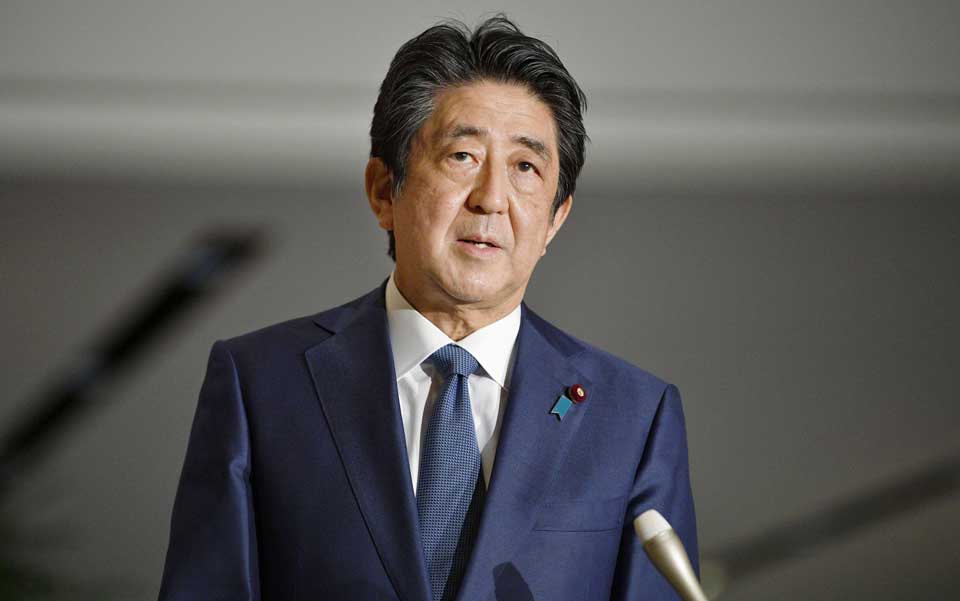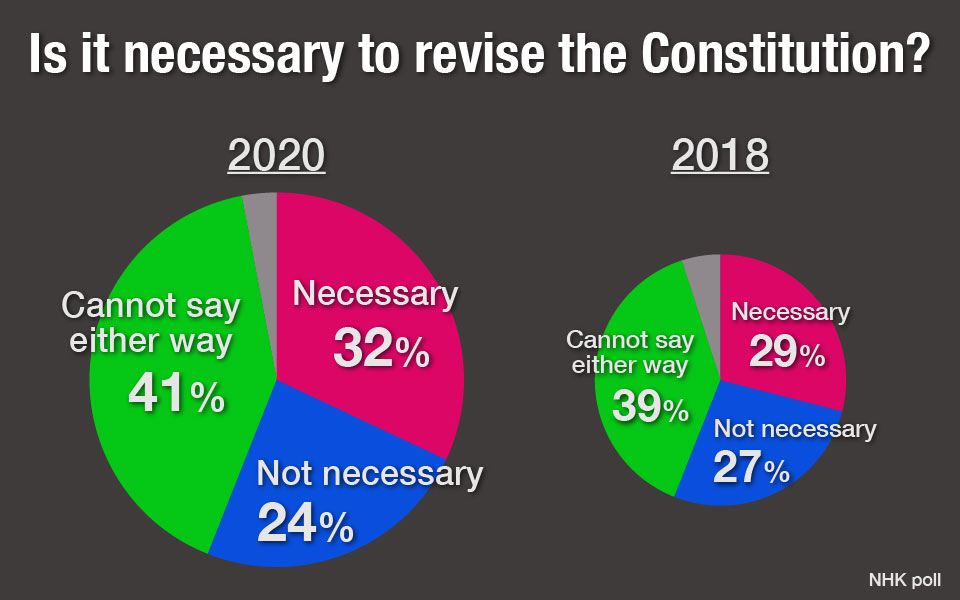Japan's Prime Minister Abe Shinzo has made no secret of his desire to amend the Constitution. Three years ago he set a target year: 2020. On May 3 he told a group of constitutional reformers that he hasn't been able to hit that target, but the current state of emergency has given him a renewed determination. He said it's essential that the document defines the role of government and the people at times of emergency.

The ruling Liberal Democratic Party drew up a plan for constitutional amendments in 2018, and included a clause that would give the Cabinet more powers at times of emergency.
Several politicians, including members of the ruling LDP, have been arguing that lawmakers should now start discussing the details of such a change.
But Edano Yukio, the president of the opposition Constitutional Democratic Party, says it's wrong to try to tie the pandemic to constitutional amendment.
"Some say we need stronger restrictions on private rights at times of emergency and therefore it is necessary to change the Constitution. But we can respond to emergency situations using current laws." he argued in a video posted online.

An NHK poll conducted in April found that 32% of respondents supported amending the Constitution, 24% said it's not necessary and 41% couldn't say either way. That support rate is up slightly from a similar poll two years ago, which found that people were almost equally divided.
But this year's poll also found that the number of people who think constitutional revision should be a priority has decreased. This year, 78% of respondents said other issues should come first. In 2018, the figure was 68%.

